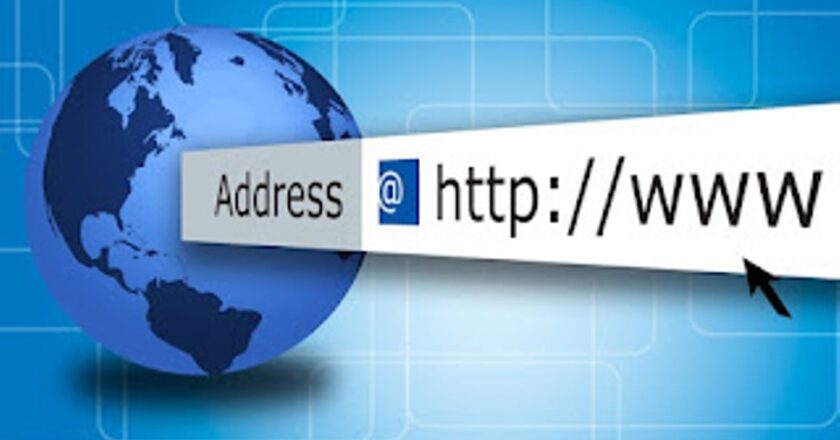How to Choose a Domain Name

Okay, so after many painstaking hours of researching keywords and niches, you’ve finally narrowed your search down to a niche that you’re sure will be a real bread-winner. The next step is to choose a domain name.
This shouldn’t be just any domain name. This is the first impression most people will see when they visit your website, not to mention referral links from other websites. It can also play a great big factor in your site’s SEO (or Search Engine Optimization if you just landed on Earth). That’s right. Search engines tend to favor sites with the main keywords included in the domain.
The process to choose a domain name is fairly simple, but you have to put some considerable thought into it. Why? Because once your site is pretty well established, you’re stuck with it for the long haul… That is unless you want to start all over again.
Begin by deciding what type of site you are going to build. Are you trying to build up a brand, promote a product or build a keyword rich authority site?
What’s the difference?
A site designed to build up a brand name usually uses a company’s brand name or similar for the domain. An example of this would be, if you’re name were Greg and you are starting a blog about gardening, you might choose a domain name like gardeningwithgreg.com. This domain is designed to promote the brand “Gardening with Greg”. This site, Monetizing.info uses a “brand building” domain name as well.
If you were building a website for a local business with a physical storefront, usually you will want to use a “brand building” domain name because a lot of people will use the internet to search for the actual name of the business (or brand) in addition to the products and services that business offers.
A keyword rich authority site on the other hand will have a domain name that exactly matches the main keyword targeted for that site (or close to it). If you want people to find your site for the key phrase: “garden fresh salsa recipes” then you would want the domain of your authority site to be “gardenfreshsalsarecipes.com” or “bestgardensalsarecipes.com” etc. You would then keep adding more and more “high quality” content to the site using a variation of your main key phrase with each new piece of content added.
There is a lot of potential with authority sites. If they are built correctly and use the proper SEO techniques, they can make a lot of passive income simply by adding Adsense or Amazon affiliate links to the content.
Another thing to consider is the potential growth of your website over time. For example, hippieweddingdresses.com may have worked for a micro niche site prior to the Google zoo updates (Panda & Penguin), but if you’re building large authority site, then a domain such as uniqueweddingdresses.com may allow for more possibilities to expand the content offered.
An authority site usually has a bare minimum of 20 articles, but the more the better. Do you think you could write 20 unique articles about hippie wedding dresses? Maybe you could but I know I would have a very difficult time.
On the other hand, the keyword “unique wedding dresses” offers a much more broad range of micro niche keywords within itself. You could write articles targeting keywords such as hippie wedding dresses, camouflage wedding dresses, wedding dresses for the beach, duct tape wedding dresses, etc., because each of these keywords fall under the “unique wedding dresses” topic. More of these types of keywords can easily be discovered using Google Suggest or the Google Keyword Tool as shown in the above video.
What if my site will be used for promoting a popular affiliate product or brand?
Promote away but be careful when choosing your domain name. Unless you have written permission from the source, stay away from using product names or brand names that you don’t own the rights to.
Wouldn’t it suck to be making $100 per day from your “DiscountAmazonKindle.com” site when you receive a Cease and Desist letter from Amazon and are forced to delete the domain name?
Spencer Haws over at Niche Pursuits wrote an excellent article explaining why he no longer takes the risk with buying branded domain names. He also gives some great alternatives. You can read his article here:
http://www.nichepursuits.com/should-you-buy-branded-domains/
Does the top-level domain extension really matter?
Short answer: Yes!
When people think about a website or the internet in general, one of the first things to pop in their minds is “.com”. This is because the “.com” extension is and always has been the most popular website extension.
You may find that a lot of your visitors may arrive at your site by directly typing your domain name into the address bar of their web browser as opposed to search engines or referrals from another site. If these visitors type the wrong web extension, you could be missing out on paying customers who cannot find your site or worse yet, arrive at a competitor’s site with their wallets wide open.
If the .com domain name you want is not available try contacting the owner and see if they would be willing to sell it. Be prepared to pay a premium price though.
Another thing you can do is add a prefix or suffix to the domain you are after. If examplesite.com is not available then maybe consider bestexamplesite.com, examplesiteblog.com or examplesitestore.com.
If you’ve exhausted all ends and absolutely cannot find a .com domain for your site, your next choice should be .net and .org in that order. Obviously if you are trying to build a brand, you may seriously want to consider buying all three and setting up the .net and .org to redirect to the .com extension. This will eliminate the possibility of someone setting up a site on one of these other domains in effort to try to get a portion of your visitors.
Unless you are designing a website for a government agency (.gov) or an educational institution (.edu), stay away from the cheaper, lesser known domain names such as .biz or .info. These may cost you as little as $2 – $3 to register but people know they are cheap and will therefore make you and your brand appear cheap as well.
Country specific top-level domains such as .ca (Canada) or .uk (United Kingdom) may be used if your site will only be targeting visitors within those countries, otherwise stick with a .com.
A Super Cool Tool
A while back Keith Everett did a great video tutorial about how to use “Bust a Name” to discover domain names that most people would overlook. Check out his video below and give him a big ole’ “like” if he helped you out.
Can I choose a domain name with a hyphen?
I’ve heard somewhere that the general rule of thumb is to use no more than two hyphens in a domain name. I tend to agree with that but if possible, lose them completely. The idea is to make the domain name as easy to remember as possible. This is especially true if you plan to do a lot of offline promotion with classifieds or yellow page ads, business cards or especially radio where you expect your visitors to type your domain into a web browser.
In some cases however, a hyphen will break up multiple words of a domain making it actually easier to read and remember. Just use discretion and always be thinking of ways to make it easier for the end user.
Speaking of making it easier, try to keep your domain name to no longer than 25 characters although shorter would even be better. Also avoid abbreviations and using numbers in place of words. For example: methods2success.com or thegr8estworkouts.com. Remember, make it easy for people to find and remember your site.
ALERT! Cost savings ahead
 Before you go out and spend your hard earned money for a full priced domain name, check to see if there are any coupons out there that you can use to discount your order. I buy my domains from GoDaddy.com and NameCheap.com and I can’t speak for some of the other domain registrars but they offers coupons and discount codes on a regular basis. I’ve seen discounts of up to 30% off your order with no minimum purchase.
Before you go out and spend your hard earned money for a full priced domain name, check to see if there are any coupons out there that you can use to discount your order. I buy my domains from GoDaddy.com and NameCheap.com and I can’t speak for some of the other domain registrars but they offers coupons and discount codes on a regular basis. I’ve seen discounts of up to 30% off your order with no minimum purchase.
Just do a Google search for “GoDaddy coupon codes” (or Namecheap, etc) and see what you can find. I’ve never paid full price for my domain names and you shouldn’t either.
In Conclusion…
Definitely invest some thought and research when you choose a domain name for your website. Otherwise you may regret it later down the road. Decide early on if you will be building a brand name or go the route of the authority site. Try to find a .com over all other top-level-domains and always be thinking about ways to make the domain name easy to type and remember for the end user. Oh yeah, and don’t forget to take advantage of coupons and discounts whenever possible.
Leave me a comment below to let me know what you think.






